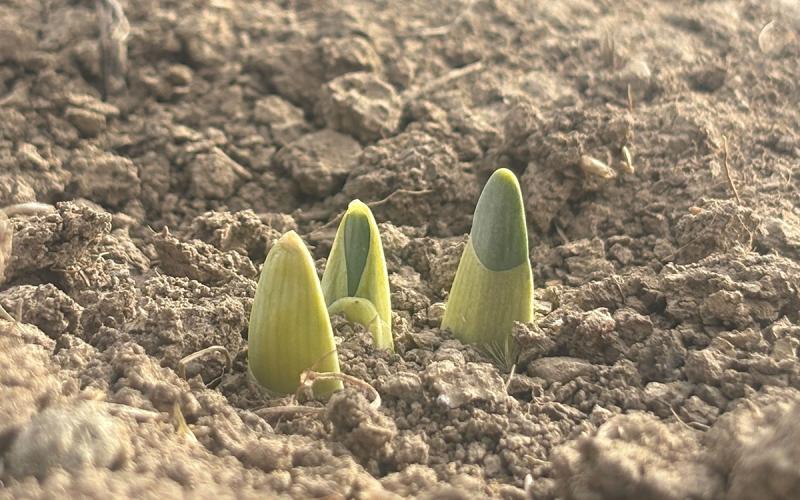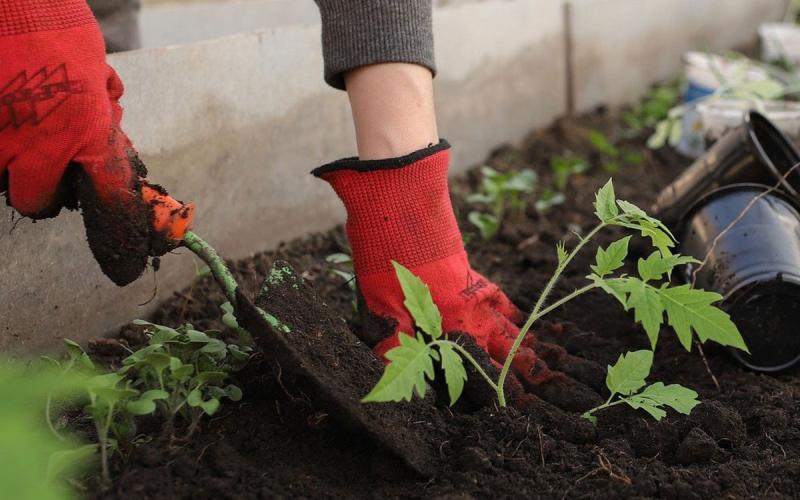Originally released May 5, 2020.
BROOKINGS, S.D. - SDSU Extension experts have established guidelines for community gardens to follow in order to promote the health and safety of local gardeners during the COVID-19 pandemic.
“Producing nutritious foods close to home at a community garden may be more practical and relevant than ever as food prices are soaring in some locations, even as peoples’ incomes are shrinking,” said Lauren Pierce, SDSU Extension Family & Community Health Field Specialist. “Similar to other everyday activities that we need to do differently, we also need to shift the way we approach community gardening.”
SDSU Extension is recommending the following community garden guidelines:
- Always follow local and state guidelines. Guidelines may change and evolve as more is learned about COVID-19, so be sure to stay up to date on changes. Garden leadership should consult with local government leaders to determine if their space is considered essential and follow local guidelines.
- Stay at home when ill or when exposed to someone else who is ill. Always lean on the precautionary side. Post this guideline in a large visible notice at the garden entrance and in any communication about the garden.
- All gardeners and visitors should wash or sanitize hands before beginning garden work and upon exiting the garden. Set up a handwashing station, have hand sanitizer readily available, or request that gardeners and visitors bring their own hand sanitizer.
- Sanitize items that are used and/or touched on a regular basis. This could include shared tools, hoses, water spigots, tables, bins, buckets and gates. Follow the Centers for Disease Control and Prevention’s (CDC) directions for cleaning and disinfecting hard surfaces.
- Consider acquiring multiple sets of common tools to allow time for cleaning and sanitizing between users. Ask volunteers to bring their own tools or assign select tools and tasks to individuals.
- Encourage the use of drip irrigation systems to minimize handling of hoses.
- Practice social distancing to slow the spread of COVID-19. Encourage individuals to maintain a distance of at least 6 feet between themselves and others while in the garden. Do not gather in large groups, host gatherings or provide group education at a garden. If feasible, create alleyways between each garden plot and widen pathways to facilitate distancing.
- Have a manager or gardener present to monitor the garden and visitors if the gardens are not fenced off. If this is not possible, use signage to state that a 10-person limit is in place at the garden at this time. Note that the 10-person limit may need to be adjusted depending on the size of the garden. Also consider utilizing a schedule to stagger garden visitors and workers.
- Wear a mask or cloth face covering to protect others in case you are infected and not showing symptoms. The CDC recommends wearing a cloth face covering in public settings.
- Communicate guidelines to gardeners and visitors via posted signage at garden site.
SDSU Extension experts also recommend individuals follow food safety considerations when handling and consuming garden produce. “The CDC states that based on information about this novel coronavirus thus far, it seems unlikely that COVID-19 can be transmitted through food,” Pierce said. “However, it is still important to continue to practice basic fruit and vegetable washing guidelines.”
These guidelines include:
- Wash hands thoroughly before washing fruits and vegetables and again after handling the produce.
- Wash fruits and vegetables under running water before eating and preparing.
- It is important to wash all produce, regardless of whether or not you are going to eat the peel.
When you cut into a fruit or vegetable without washing it first, germs from the skin can contaminate the inside of the produce.
“We can have a productive community gardening season this year by following basic hygiene practices and by taking extra precautionary steps such as practicing social distancing and wearing cloth face coverings,” Pierce said. “The benefits of community gardening cannot be overstated and we may find that it is an imperative support to our communities now more than ever.”
SDSU Extension Garden Hotline
South Dakota citizens may submit garden questions to the SDSU Extension Garden Hotline. Certified and experienced Master Gardeners are available to provide research-based information on plants, lawns, trees and insects. Submit questions via email along with a phone number and a representative will respond to you.


